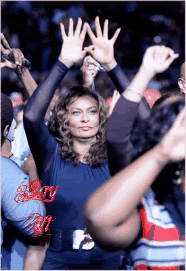Beyoncé - "Schoolin' Life"
Friday, October 31, 2008

It's a yearly jaunt that's observed on October 31. The holiday is favored by many children who look forward to dressing up as their favorite superhero, Disney character or perhaps something a little more in tune with the occasion such as a witch, ghost or goblin. With costumes donned, neighborhood little ones and not-so-little ones alike can be seen throughout communities, knocking on doors in anticipation of the householder doling out candy, gum and other treats.
This has become a social event for adults as well. Many plan Halloween gatherings/parties and even host contests for the best , most original, funniest and most creative get ups.
If this is how you approach Halloween then the rest of this information may not be of interest to you. However, if you'd like to know its origin and the background of its associated customs, by all means continue reading ...
The Online Etymonlogy Dictionary gives this definition:
c.1745, Scottish shortening of Allhallow-even "Eve of All Saints, last night of October" (1556), the last night of the year in the old Celtic calendar, where it was Old Year's Night, a night for witches. Another pagan holiday given a cursory baptism and sent on its way. Hallowmas "All-saints" is first attested 1389.
The Encyclopedia Americana says: "Elements of the customs connected with Halloween can be traced to a Druid ceremony in pre-Christian times. The Celts had festivals for two major gods-a sun god and a god of the dead (called Samhain), whose festival was held on November 1, the beginning of the Celtic New Year. The festival of the dead was gradually incorporated into Christian ritual."-(1977), Vol. 13, p. 725.
The Celts believed that as the days shortened, it was necessary to reinvigorate the sun through various rites and sacrifices.
It was believed that on the festival of Samhain, the veil between the human and the supernatural worlds was parted and spirits, both good and evil, roamed the earth. The souls of the dead were thought to return to their homes, and families would put out food and drink for their ghostly visitors in hopes of appeasing them and warding off misfortune.
This practice continues to thrive in many latino cultures.
Labels: News/Stories


















































































0 comments:
Post a Comment